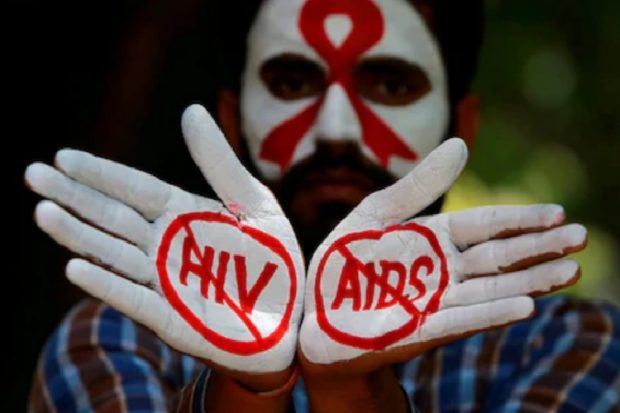
Wound healing in mucous tissues may prevent AIDS: Study
PTI, Nov 25, 2019, 4:54 PM IST

Washington: Wound healing events in mucous tissues — part of the body’s defense against germs — during early infection by Simian Immunodeficiency Virus (SIV) guard some primate species against developing AIDS, a study has found.
Aspects of this wound-healing immune response could become targets for developing new therapies to prevent AIDS in people with HIV infections, according to the researchers from the University of Washington School of Medicine in the US.
The research, published in the journal Nature Communications, looked at why certain species can carry the virus throughout their lives, and still avoid disease progression.
SIV is closely related to the Human Immunodeficiency Virus and is used as a laboratory model for many studies seeking AIDS and HIV cures and preventions.
Despite effective treatments to manage HIV, the virus remains a major global health threat, the researchers said.
Nearly 37.9 million people in the world are living with an HIV infection. Each year about 770,000 people die of AIDS, they said.
There are no clinically available vaccines against HIV, or cures for the infection, till now.
In the latest study, scientists sought to uncover, in natural hosts, successful virus-fighting tactics that could inform the design of better antiviral drugs to treat HIV in people.
They found that the biological events involved in wound healing of mucosal tissues create an environment inside the body that protects against the destructive consequences of SIV infection.
The researchers compared virus-host interactions and immune response to SIV, including gene expression profiles, from the African green monkey — a natural host for HIV — with those from an AIDS-susceptible species, the rhesus macaque.
Similar data from human HIV infections was also evaluated.
“The use of public datasets were a key component of this research and highlights the importance of the scientific community sharing their data in public forums,” said Fredrik Barrenas from the University of Uppsala, Sweden.
The researchers explained that both HIV and SIV infect immune cells called T helper cells. These cells are abundant in the intestine and in specialised tissues elsewhere in the body.
The HIV infection provokes an immune response that injures tissues surrounding the intestine, the researchers said.
This injury allows the bacteria that normally reside in the gut to penetrate the tissue and invade other sites in the body, they said.
This causes further inflammation and damage. The situation attracts more immune cells, some of which get infected with HIV, according to the researchers.
Others undergo a program of spontaneous cell death. Deterioration of the immune system and further decline of infection-fighting T cells can follow, they said.
If the infection progresses to AIDS, the syndrome lowers the ability to resist opportunistic pathogens and fend off cancer.
The researchers found that, in contrast, African green monkeys in the early stages of SIV infection quickly activate and maintain regenerative wound healing mechanisms in their mucosal tissue.
For example, in the monkeys, a white-cell mediated remodelling of tissue occurs.
Some of the repair mechanisms, the researchers said, are evolutionarily conserved.
The green monkey’s ability to activate mucous tissue wound healing, the research team found, interrupts the course of the disease such that the onset of AIDS is avoided.
“We think the regenerative wound healing process likely preserves the tissue integrity and could prevent the inflammatory insults that underlie immune exhaustion, cell death, and AIDS that happen due to SIV or HIV infection,” said Michael Gale, a professor at the University of Washington School of Medicine.
“This maintenance of tissue integrity would be a valuable therapeutic strategy to avoid systemic immune activation and progression to AIDS.
“Our findings indicate that the use of therapies that stimulate the wound healing response during early infection could have a protective effect against disease from HIV infection,” he said.
Udayavani is now on Telegram. Click here to join our channel and stay updated with the latest news.
Top News

Related Articles More

BTS2024: If India can make rocket sensors, it can also make car sensors, says ISRO chief Somanath

World COPD Day: Know your lung function

SpaceX successfully launches ISRO’s 4,700 kg communication satellite from US

As AI and megaplatforms take over, the hyperlinks that built the web may face extinction

Plastic waste could double by 2050, researchers find, suggest policies to address issue
MUST WATCH
Latest Additions

Kaziranga National Park to be centrepiece of 12th edition of ITM in Assam

Engineer dead, supervisor injured as wire rope snaps at metro site

Karnataka bypolls: Cong leads in Sandur, BJP and JD(S) ahead in Shiggaon and Channapatna

COP29: Civil society protests climate finance proposal, calls for ‘no deal’ over ‘bad deal’

Elections: Vote counting begins Maharashtra & Jharkhand
Thanks for visiting Udayavani
You seem to have an Ad Blocker on.
To continue reading, please turn it off or whitelist Udayavani.



















